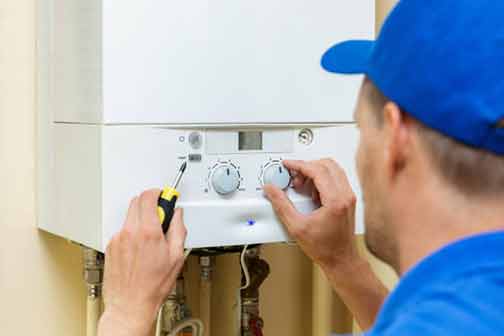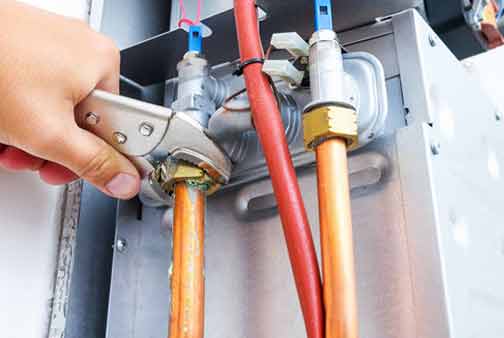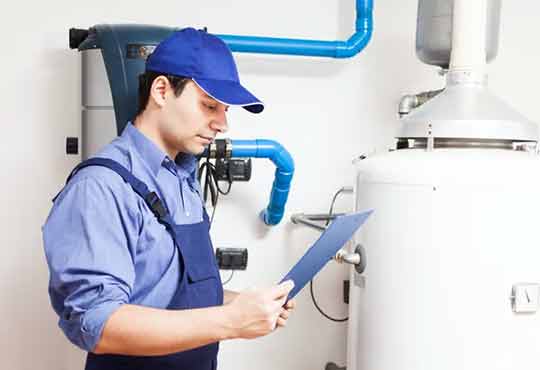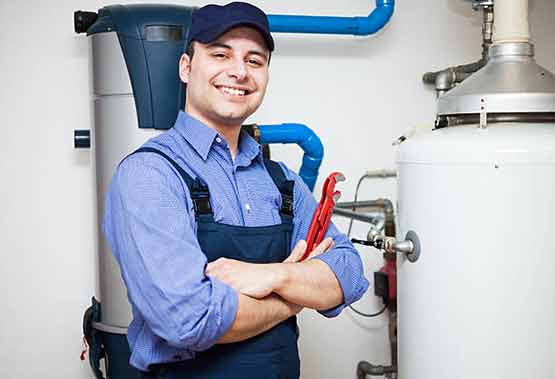
As a homeowner, it is important to have a good understanding of your home’s water heating system. A water heater is an essential appliance that provides hot water for various household activities such as bathing, cooking, and laundry. This article aims to provide homeowners with the basic knowledge they need to know about water heaters, including how they work, different types available, maintenance tips, and energy efficiency considerations.
How Water Heaters Work
Water heaters work by using energy sources such as electricity, natural gas, propane, or solar power to heat the water. The majority of residential water heaters use either electricity or natural gas. These appliances consist of a storage tank, heating elements or a burner, temperature controls, and safety mechanisms.
When hot water is required, cold water enters the tank and is heated by the electric elements or the gas burner. The heated water is then stored until it is needed. The temperature controls ensure that the water remains at a desired temperature, while safety mechanisms prevent the water heater from overheating or over-pressurizing.

Types of Water Heaters
There are several types of water heaters available for residential use. The most common ones include:
1. Conventional Storage Tank Water Heaters: These are the traditional water heaters with a storage tank to hold and heat water. They come in different sizes and are relatively affordable, but they can consume more energy due to standby heat loss.
2. Tankless Water Heaters: Also known as on-demand water heaters, they heat water directly without the need for a storage tank. They are more energy-efficient as they only heat water when it is required. However, they have a higher upfront cost compared to conventional water heaters.
3. Heat Pump Water Heaters: These water heaters use electricity to move heat from the air or ground to heat the water. They are highly efficient and can save significant energy costs in the long run. However, they may not be suitable for all climates.
4. Solar Water Heaters: Solar water heaters utilize the sun’s energy to heat the water. They are eco-friendly and can provide hot water with minimal operating costs. However, their effectiveness may be affected by climate and location.

Maintenance and Safety
Proper maintenance and safety precautions are crucial to ensure the longevity and safe operation of your water heater. Here are a few important tips to keep in mind:
1. Regular Inspection: Periodically check your water heater for any signs of leaks, corrosion, or malfunction. Don’t forget to inspect the pressure relief valve as well.
2. Flushing the Tank: Over time, sediment can accumulate at the bottom of the tank, affecting the efficiency of the water heater. It is advisable to flush the tank annually to remove any debris or sediment.
3. Adjusting the Temperature: Set the temperature to a safe and energy-efficient level, preferably around 120 degrees Fahrenheit (49 degrees Celsius). This will prevent scalding and reduce energy consumption.
4. Testing the Pressure Relief Valve: The pressure relief valve is a crucial safety feature that releases excess pressure in the tank. Test it periodically to ensure it is functioning correctly.
5. Professional Maintenance: It is recommended to schedule professional maintenance at least once a year. A skilled technician can inspect and service the water heater, ensuring optimal performance and safety.

Energy Efficiency Considerations
With the rising energy costs and environmental concerns, it is essential to consider the energy efficiency of your water heater. Here are a few factors to keep in mind:
1. Energy Efficiency Ratings: Look for water heaters with high Energy Factor (EF) ratings. The higher the EF, the more energy efficient the water heater. ENERGY STAR certified products are a good choice.
2. Insulation: Ensure your water heater is well insulated to minimize standby heat loss. Insulating pipes can also improve energy efficiency by reducing heat loss during water transmission.
3. Sizing: Choose the right-sized water heater based on your household’s hot water needs. An oversized heater can lead to unnecessary energy consumption, while an undersized one may result in insufficient hot water.
4. Time-of-use Rates: If your utility offers time-of-use rates, consider installing a water heater with a built-in timer. This allows you to heat water during off-peak hours, when electricity costs are lower.
Conclusion
A good understanding of water heater basics is essential for homeowners to ensure reliable hot water supply and maximize energy efficiency. By knowing how water heaters work, the different types available, maintenance tips, and energy efficiency considerations, homeowners can make informed decisions when it comes to purchasing, using, and maintaining their water heaters. Regular maintenance and adherence to safety precautions are crucial for the safe operation of these appliances. Additionally, considering energy efficiency can help reduce energy consumption and lower water bills in the long run.
